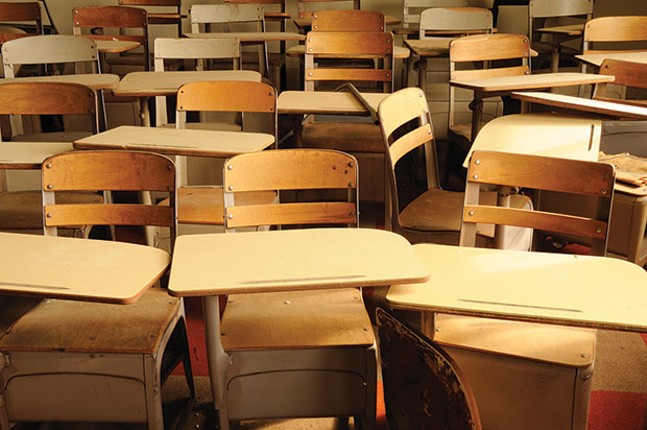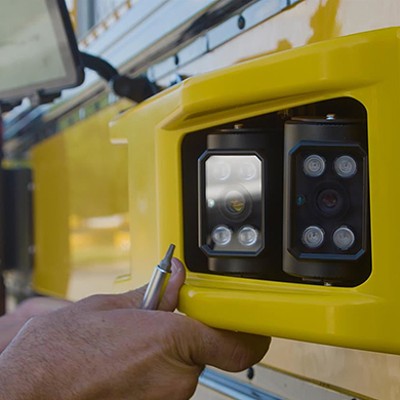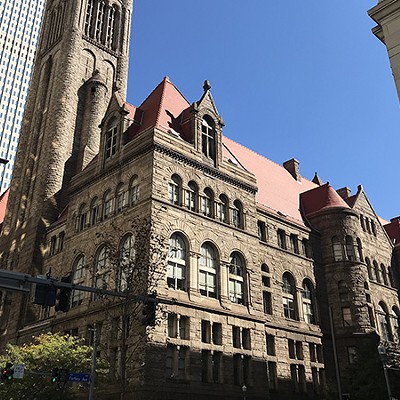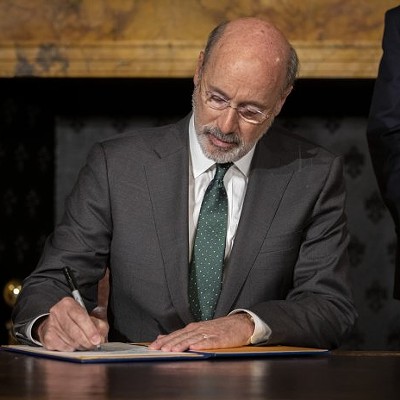According to Pittsburgh Public Schools data from the 2015-16 school year, African-American students in kindergarten through fifth grade were suspended at four times the rate of white students.
Such numbers aren’t new. Around the country, black students have long been suspended at rates disproportionate to their white peers. But now, a national movement being led in Pittsburgh by the Education Rights Network is calling for change.
On June 12, members of the Education Rights Network interrupted a meeting of the Pittsburgh Public Schools board of directors to call for action. They delivered a petition signed by more than 600 people supporting their efforts and a report analyzing suspensions in PPS during the 2015-16 school year.
“Our youngest students in pre-K through fifth grade missed 3,160 days of school in the 2015-16 school year,” said group member Bernard Isley. “This is unacceptable. When you look at the data, you will see that Pittsburgh Public Schools is pushing our black and disabled children out of the classroom at higher rates. This denies them quality instructional time, harms our school community, and leads to disproportionate dropout rates, disproportionate incarceration, and continues cycles of generational poverty. I believe the school board wants this change. I am here today to ask you to have the courage to take action.”
This month, PPS is considering changes to its student code of conduct. As part of that work, the Education Rights Network is calling for a ban on suspensions for minor infractions in grades pre-K to 5.
“We’ve applauded Pittsburgh Public Schools for the steps they’ve taken to remove zero-tolerance practices from the code of student conduct, but we can really no longer rely on granular changes to address the lasting harms experienced by these children,” says Cheryl Kleiman, a staff attorney at the Education Law Center. “A ban on suspensions for our youngest learners is really in the name of the ultimate goal of fostering a positive and inclusive school climate that is fair for all students.”
According to the Education Rights Network, students are often removed from the classroom for minor, nonviolent misconduct, with 65 percent of suspensions occurring due to “disruption of school.” And they say the high number of suspensions contributes to the school-to-prison pipeline that funnels black students into the criminal-justice system, and to the achievement gap between black and white students.
“Suspensions not only hinder a student’s academic progress, but they impinge on the development of positive teacher and peer relationships,” says Kleiman. “They also delay the proper identification and provision of special-education and related services for students with disabilities. School is a place where students are required to be by law, so we should be creating supports to respond to the behavior of young children that is developmentally appropriate.”
Ruth Howze, another member of the coalition, is a permanent PPS substitute teacher and a mother of four. As a teacher in the classroom, and a mother whose now-28-year-old daughter was suspended several times as a child, Howze has seen this issue from both sides.
“It’s sickening if you look at the number of days that have been missed,” says Howze. “You can’t imagine how hard it is for me as a teacher to catch up a kid who has been out of school for one day, let alone for three or five days. In addition to the new work they have when they come back to school, they have all the old work they missed.”
As of April, four states and 10 school districts around the country have implemented policies limiting suspensions. For example, an Oregon law passed in 2015 limits out-of-school suspensions and expulsions for students in fifth grade or lower to three circumstances: “non-accidental conduct causing serious physical harm to a student or school employee, if student conduct poses a direct threat to health and/or safety of students or school employees, or when the suspension or expulsion is required by law.”
“We have to put a plan in place that no kid will be suspended for minor infractions in grades K-5 and if not K-5, then K-3. We have to start somewhere,” Howze says. “We’re not talking about the kids who are violent, throwing a chair or throwing their bookbags. There are many schools that are imposing suspensions off the cuff.”
At last week’s board meeting, most school directors agreed the district’s suspension rates are too high, but they didn’t all agree that a ban would be the best solution.
“From the data, you can see the impact suspensions are having. … Kids are getting suspended from kindergarten,” said school-board member Thomas Sumpter. “Some board members hope [the ban] is put in place by next school year. Some feel it might take longer than that. Today is the first day in the discussion.”



















